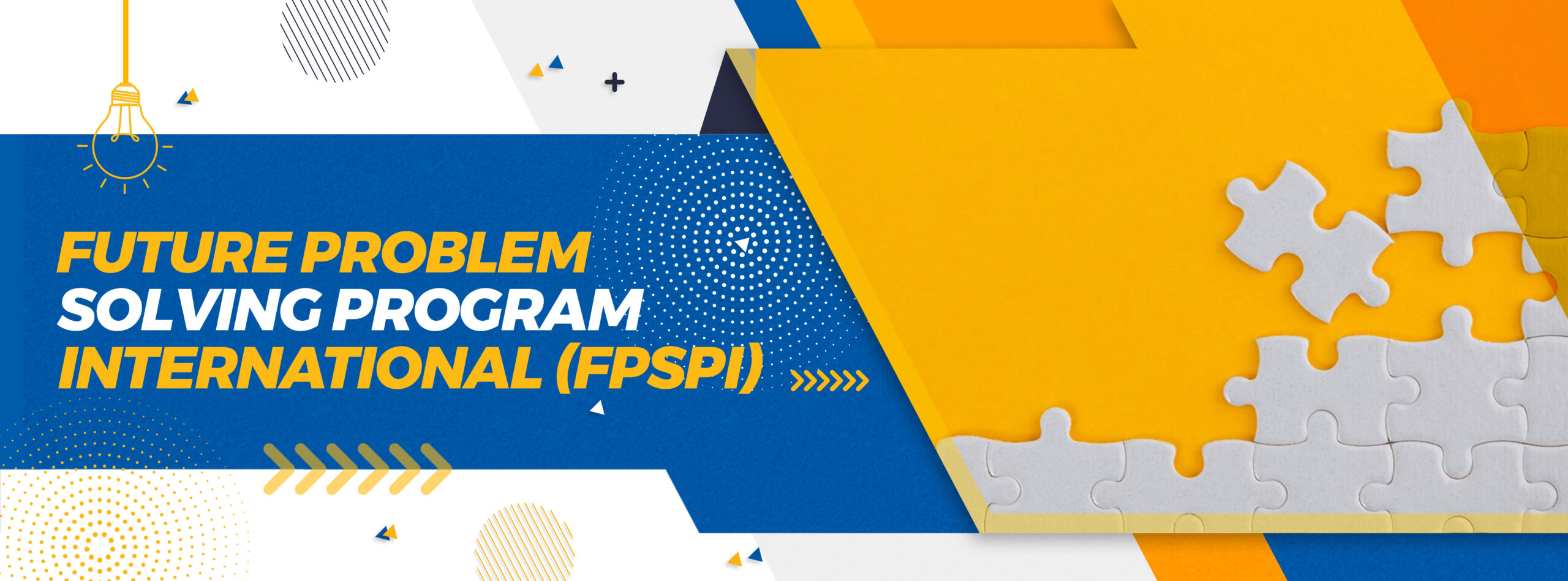

FPSPI is an international program that engages thousands of students annually, promoting critical and creative thinking, problem-solving, and decision-making skills. It was created in 1974 by Dr. E. Paul Torrance, a renowned creativity pioneer. The program offers competitive and non-competitive components based on a six-step model, aligning with various teaching standards such as ESSA, Australian Curriculum, New Zealand Curriculum, P21, PISA, IB, and NAGC Programming Standards.
The International Baccalaureate (IB) program incorporates different approaches to learning (ATL), including thinking skills (creative, critical, and transfer), social skills (collaboration), communication skills, self-management skills, and research skills. These ATLs foster self-regulation and intrinsic motivation, preparing students for independent and collaborative work in the workforce. Future Problem Solving reinforces these skills.
Over the past decade, more than 250,000 students from 37 states and 14 countries have participated in Future Problem Solving, highlighting its widespread reach and impact.
FPSPI is chosen for its ability to address the need for problem-solving skills in the curriculum, preparing students for the future. It enhances global awareness, covers various subjects like business, science, and society, and fosters research and foresight. Integrating with language arts and social studies, it develops 21st-century skills, stimulates critical and creative thinking, encourages vision-building, offers competitions, promotes communication and teamwork, and connects students with the real world.
Programs offered for Pakistani students:
FPS offers two competitive components in Pakistan:
1: Global Issues Problem Solving
2: Scenario Writing
Global Issues Problem Solving (GIPS)
Global Issues Problem Solving (GIPS) teaches students how to think creatively about the future as students research and analyse the annual topics. It can be used as a curriculum, integrated into content areas, or offered as an extra-curricular option. Participants research a series of global topics and apply FPSPI’s six-step problem-solving process to resolve the Future Scene — a hypothetical scenario set 20-30 years in the future. Culminating in a detailed Action Plan, entries are authentically assessed and scored by trained evaluators.
The Scenario Writing (SW):
The Scenario Writing (SW) component strives to help students enlarge, enrich, and make more accurate their image of the future while honing creative writing skills. It can be used as a stand-alone activity by an FPS coach, an English teacher, a parent, or any instructor with students who are interested in creative writing. Students develop short stories related to one of five annual FPS topics. Entries are 1500 words or less, set at least 20 years in the future, and are an imagined, but logical, outcome of actions or events taking place in the world. Student work is assessed based on the character, plot, and feasibility of possible outcomes which directly reflect hydra trends in the researched topic.
HOW FPS WORKS
The first step is to determine which component you are interested in – Global Issues or Scenario Writing. Your FPS coach will register you and receive materials. Coaches can be a parent, experienced FPSI/mentor, or a teacher. Materials are provided to enhance learning of the process and provide support and feedback. Virtual support is available through videos and instructional e-learning experiences. Everyone starts with practice topics and preliminary project deadlines to support learning through feedback/assessment. After the practice topics, competitive topics are offered for regional/state or national finals which can qualify you for the International Conference. At the International Conference, you will get a chance to compete and collaborate with over 2,000 other problem solvers from all over the globe!

FPSPI is an international program that engages thousands of students annually, promoting critical and creative thinking, problem-solving, and decision-making skills. It was created in 1974 by Dr. E. Paul Torrance, a renowned creativity pioneer. The program offers competitive and non-competitive components based on a six-step model, aligning with various teaching standards such as ESSA, Australian Curriculum, New Zealand Curriculum, P21, PISA, IB, and NAGC Programming Standards.
The International Baccalaureate (IB) program incorporates different approaches to learning (ATL), including thinking skills (creative, critical, and transfer), social skills (collaboration), communication skills, self-management skills, and research skills. These ATLs foster self-regulation and intrinsic motivation, preparing students for independent and collaborative work in the workforce. Future Problem Solving reinforces these skills.
Over the past decade, more than 250,000 students from 37 states and 14 countries have participated in Future Problem Solving, highlighting its widespread reach and impact.
FPSPI is chosen for its ability to address the need for problem-solving skills in the curriculum, preparing students for the future. It enhances global awareness, covers various subjects like business, science, and society, and fosters research and foresight. Integrating with language arts and social studies, it develops 21st-century skills, stimulates critical and creative thinking, encourages vision-building, offers competitions, promotes communication and teamwork, and connects students with the real world.
Programs offered for Pakistani students:
FPS offers two competitive components in Pakistan:
1: Global Issues Problem Solving
2: Scenario Writing
Global Issues Problem Solving (GIPS)
Global Issues Problem Solving (GIPS) teaches students how to think creatively about the future as students research and analyse the annual topics. It can be used as a curriculum, integrated into content areas, or offered as an extra-curricular option. Participants research a series of global topics and apply FPSPI’s six-step problem-solving process to resolve the Future Scene — a hypothetical scenario set 20-30 years in the future. Culminating in a detailed Action Plan, entries are authentically assessed and scored by trained evaluators.
The Scenario Writing (SW):
The Scenario Writing (SW) component strives to help students enlarge, enrich, and make more accurate their image of the future while honing creative writing skills. It can be used as a stand-alone activity by an FPS coach, an English teacher, a parent, or any instructor with students who are interested in creative writing. Students develop short stories related to one of five annual FPS topics. Entries are 1500 words or less, set at least 20 years in the future, and are an imagined, but logical, outcome of actions or events taking place in the world. Student work is assessed based on the character, plot, and feasibility of possible outcomes which directly reflect hydra trends in the researched topic.
HOW FPS WORKS
The first step is to determine which component you are interested in – Global Issues or Scenario Writing. Your FPS coach will register you and receive materials. Coaches can be a parent, experienced FPSI/mentor, or a teacher. Materials are provided to enhance learning of the process and provide support and feedback. Virtual support is available through videos and instructional e-learning experiences. Everyone starts with practice topics and preliminary project deadlines to support learning through feedback/assessment. After the practice topics, competitive topics are offered for regional/state or national finals which can qualify you for the International Conference. At the International Conference, you will get a chance to compete and collaborate with over 2,000 other problem solvers from all over the globe!
Age Criteria:
Eligible grades for FPSI:
- Junior (grades 4-6)
- Middle (grades 7-9)
- Senior (grades 10-12)
Coach Training Session that covered Steps 1-3
Registration form for Students: The students get registered by the coach
Registration form for Coach: https: https://www.fpspimart.org/product/annual-coach-fee/.
Global Issues Problem Solving (GIPS) Competition Cost:
- Team Registration (upto 4 participants): $130 (Contest Fee $125 and $5 are international transaction charges)
- Individual Registration: $105 (Contest Fee $100 and $5 are international transaction charges)
The Scenario Writing (SW) Competition Cost:
- Mentor/Coach Registration Cost: $50
- Premium Registration Cost (with feedback): $63
- (Contest Fee $60 and $3 are international transaction charges)
- Regular Registration Cost (without feedback): $40
- (Contest Fee $40 and $3 are international transaction charges)
- In order to confirm your registration, please fill out the form by clicking on (Register Now) in the tab below.
- You will receive a confirmation email within 24 hours.
- Payment is nonrefundable if you are unable to participate in the competition after registration.
GLOBAL ISSUES PROBLEM SOLVING (GIPS):
- Registration deadline: October 10, 2023 (Recommended)
- Registration deadline: February 1, 2024 (Skipping PP1, PP2)
Submission | Due Date |
|
Practice Problem #1 (PP1) Tourism | October 18, 2023 | Optional, but highly recommended that the first three steps are submitted for feedback. |
Practice Problem #2 (PP2) Urbanization | December 15, 2023 | Optional, but highly recommended all six steps are attempted. |
Qualifying Problem (QP) Antarctica (2 HOUR TIMED COMPETITION) | February 9, 2024
| Applicable invitations to the Affiliate Problem will accompany assessment. |
Affiliate Problem Autonomous Transportation (2 HOUR TIMED COMPETITION) ONLY THOSE INVITED BASED ON THE WORK SUBMITTED FOR QUALIFYING PROBLEM. | March 20, 2024 | Applicable invitations to the International Conference will accompany assessment |
The Scenario Writing (SW)
Submission | Due Date | Notes |
Progress (draft) Scenario | November 21, 2023 | Feedback for improvement provided to prepare for competitive submission. Students must be registered to receive feedback. |
Final Submission • Scenario as Word File • Signed Publication Release and Behavior form | March 11, 2024 | Applicable invitations to the International Conference will accompany assessment |
Results: Participants will be sent a detailed report of their result via email.
For the year 2021 : Click Here
For the year 2022 : Click Here
Winners will attend an international awards ceremony.



